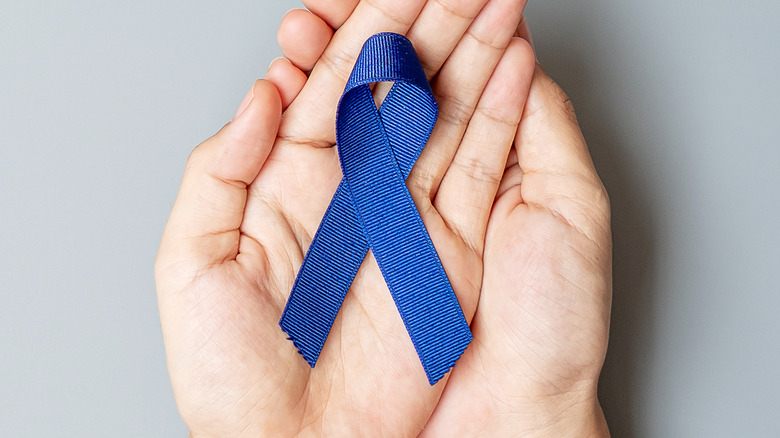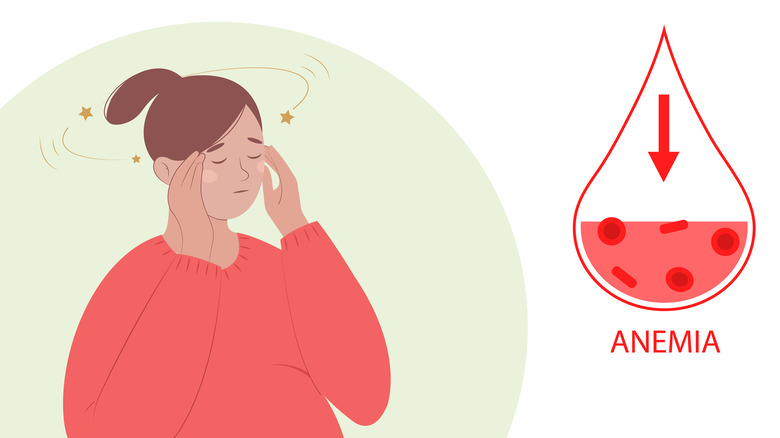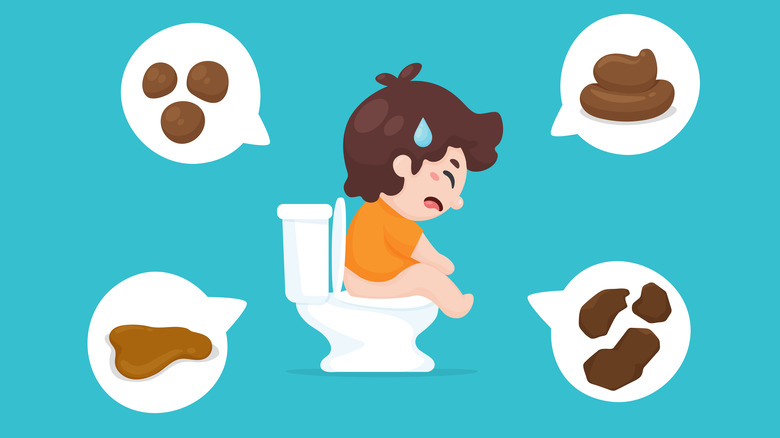Know The Early Signs Of Colorectal Cancer
Data from the Centers for Disease Control and Prevention (CDC) show colorectal cancer to be the fourth leading cause of cancer in the United States. It is also the fourth leading cause of death from cancer. The good news is, statistical graphs from the National Cancer Institute (NCI) seem to show that the number of people getting diagnosed with colorectal cancer and the number of people dying from it are decreasing every year. Inversely, the 5-year survival rate of people with known colorectal cancer is slowly increasing. The American Cancer Society theorizes that one of the reasons for this may be because screening for colorectal cancer has become a standard practice nowadays, which means that pre-cancerous polyps and early-stage cancer lesions are being detected and removed early on. There have also been numerous advancements in colorectal cancer treatment.
Many things can increase a person's risk of developing colorectal cancer. Among these include older age, chronic inflammatory bowel conditions, family history, a diet rich in fat and low in fiber, smoking, obesity, diabetes, heavy alcohol use, and radiation therapy (via Mayo Clinic).
Screening for colorectal cancer usually begins at 45 years old (per the CDC). In the meantime, you may be able to get ahead of colorectal cancer by paying close attention to what your body is telling you. It is important to note, however, that while these signs and symptoms are associated with colorectal cancer, not everyone with colorectal cancer will experience them, and they can also be seen in other conditions as well.
Changes in the size and shape of your stool
The human body has a very efficient way of processing the food that we eat, making sure that we reap all of the nutrients from them and excrete anything that we do not need.
The digestive tract is like a long tube. It starts from the mouth and progresses all the way down to the esophagus, stomach, small intestine, large intestine (colon), rectum, and anus. Connected along this tract are several other digestive organs that help break down food: the liver, gallbladder, and pancreas. The National Institute of Diabetes and Digestive and Kidney Diseases (NIDDK) explains that as food moves along the digestive tract, it gets converted from a solid state to a semi-liquid state (aka chyme). Once it reaches the large intestine, water present in chyme gets absorbed, turning it into solid stool. The stool is then pushed into the rectum, where it sits until you are ready to have a bowel movement.
The normal thickness of stool is around 1 to 2 inches, and this is highly dependent on the diameter of your rectum. If there is a tumor in the distal parts of the large intestine or in the rectum, this diameter becomes narrower, making stools look more stringy or ribbon-like. However, not everyone with colorectal cancer will have thin stools. There are also several other conditions that can explain why your stools have become thin, which includes constipation, irritable bowel syndrome, and parasitic infections of the gut (via WebMD).
Iron deficiency anemia
Iron deficiency anemia (IDA) occurs when your body does not have enough iron to make red blood cells. This most often happens in cases of malnutrition, absorption disorders, and blood loss (per Healthline). Additionally, anemia can develop in as many as 90% of people with cancer. Although the link is clearly there, the reason for why this happens can vary from one person to another.
With colorectal cancer specifically, not only does bleeding from tumors lead to IDA, but research also seems to suggest that IDA itself can serve as a risk and prognostic factor for colorectal cancer. A 2021 review in Frontiers reported that not only does excess iron (acquired orally, not intravenously) increase the risk of colorectal cancer, but iron deficiency can also promote tumor growth and development. Another study from 2021 in BioMed Central found that patients with anemia seem to be at an increased risk of progressing to advanced stages of colorectal cancer. These studies emphasize the need to frequently monitor and maintain iron and blood levels in the body in people with colorectal cancer.
IDA can present as extreme tiredness, loss of appetite, headaches, pale skin, brittle nails, chest pain, fast heartbeat, inflamed or sore tongue, and pica (craving non-food or non-nutritious substances like dirt, ice, and starch). If you are experiencing any of these symptoms, consult with your doctor as soon as you can. The only way to confirm if you have IDA is through a blood test (per Mayo Clinic).
Blood in your stool or bleeding from the rectum
Finding blood in your stool can be quite distressing, but there are many things that can cause this aside from colorectal cancer. According to WebMD, it can occur in people with esophageal problems, peptic ulcer disease, inflammatory bowel disease, bacterial gut infections, impaired blood flow to the gut (ischemic colitis), diverticular disease, abnormal blood vessels (angiodysplasia), hemorrhoids, and cuts or tears in the anus (anal fissure).
In people who have bleeding from colorectal cancer, they may clearly see blood in their stool or mixed in toilet water, or notice that their stool is darker in color than usual. Sometimes, blood may be present in small amounts and cannot be grossly seen (i.e., occult blood). People with low blood counts are usually suspected of having occult bleeding; in these instances, blood can only be detected from a stool sample (per Johns Hopkins Medicine).
Merck Manual explains that tumors bleed because they are made up of tiny blood vessels which actually help them grow. These blood vessels are fragile, which means that they can easily rupture and cause slight bleeding. But as cancer progresses to advanced stages, it can invade existing blood vessels, causing more significant (and possibly life-threatening) blood loss.
A 2018 review from the Annals of Palliative Medicine adds that anti-cancer agents (e.g., chemotherapy, radiation therapy) and common drugs used in the treatment of cancer such as immunotherapies, nonsteroidal anti-inflammatory drugs (NSAIDs), and anticoagulants, can also cause bleeding or make it worse.
Constant abdominal pain
The abdomen is generally divided into four different quadrants: upper left, upper right, lower left, and lower right. The location and character of the pain you feel can provide important clues as to what organ is affected and what condition is possibly causing the pain.
The colon is a continuation of the small intestine and begins on the lower right side of the abdomen. From there it goes upwards, to the left, then downwards, forming a down-facing C shape (per StatPearls). Because of this, if you have disease in your colon, you may feel pain in your lower left or lower right side (or both), depending on where the disease is located. For colorectal cancer, pain is usually felt diffusely in the lower abdomen. Other conditions that may also cause lower abdominal pain include irritable bowel syndrome, inflammatory bowel disease, bowel obstruction, abdominal aortic aneurysm, dyspepsia, hernia, and kidney stones (via Cleveland Clinic).
Abdominal pain from colorectal cancer is typically progressive, which means that it gets worse over time. This happens when tumors grow larger and invade deeper. If the cancer spreads, pain may also develop in other areas of the body.
Because abdominal pain is a very common and nonspecific symptom, it would be best to speak with your healthcare provider, especially if the pain is constant and has been getting worse. While colorectal cancer is only one of many causes, it does not hurt to have your symptoms further investigated, especially if you have risk factors.
Wanting to pass stool even when your bowels are empty
Tenesmus is the feeling of frequently wanting to make a bowel movement even after you have already emptied your bowel (per Healthline). Because a person with tenesmus barely has any stool in their rectum, they may often find themselves straining to make a bowel movement, which can also be accompanied by abdominal pain or discomfort.
Tenesmus is a symptom of gastrointestinal disorders. It can develop in people who have obstructed bowels (such as in colorectal cancer), bowels with structural abnormalities (e.g., rectal prolapse), functional constipation, irritable bowel syndrome, inflammatory bowel conditions, lactose intolerance, bacterial and viral gut infections (e.g., food poisoning), and problems with their enteric (digestive tract) nervous system (via Buoy Health).
The treatment for tenesmus depends largely on the underlying cause. For colorectal cancer specifically, because the obstructing tumor is often the reason for tenesmus, removing the tumor will not only relieve tenesmus, but also possibly prevent the cancer from spreading. This can be done through a combination of surgery, chemotherapy, and radiation therapy. If for some reason a person becomes unable to pass stool following surgical removal of the tumor, they will need to have a colostomy bag, which is a plastic bag connected to the abdominal wall and located outside of the body (per Medical News Today).
It is important to know that tenesmus is a rare symptom of colorectal cancer. It is more common in relatively benign conditions like constipation, food poisoning, and traveler's diarrhea.
Unintentional weight loss
Losing weight is good only if you need it. For example, if you are overweight or obese, losing as little as 5% of your total body weight can reduce your risk of developing several chronic conditions like arthritis, diabetes, hypertension, heart disease, stroke, cancer, hyperlipidemia, and sleep apnea (via WebMD).
On the other hand, if you are losing weight without even trying, even if you are overweight or obese, there may be something going on with your body that you need to get checked. People with cancer can lose weight for many reasons. It is mostly associated with loss of their appetite, which can be due to changes in their metabolism, or related to symptoms of their cancer such as nausea, vomiting, constipation, swallowing or chewing problems, loss of taste, mouth sores, and depression (per Cancer.net).
Cancer is not the only illness that can cause weight loss. According to Patient, other health conditions include hyperthyroidism, diabetes, alcohol dependence, HIV, dementia, eating disorders (e.g., anorexia), and malabsorption syndromes (e.g., celiac disease, inflammatory bowel disease). You may also lose weight from taking certain drugs such as thyroid medication, chemotherapy drugs, cocaine, and amphetamines (via MedlinePlus).
If you are experiencing unexplained weight loss, consult your doctor as soon as you can. Not only can they help you determine why you are losing weight and manage it, but they can also advise you on what types of food you need to eat and what supplements (if any) you should take.
Change in bowel movements
Normal stool is usually brown, formed, and soft. According to MedStar Health, normal bowel movements can be anywhere between once a day to three times a week. But as long as it is regular, then it usually means that you have a healthy digestive system. A few irregularities here and there can also happen, and does not automatically mean that something is wrong.
The Bristol Stool Form Scale (BSFS) was created in 1997, and has since helped clinicians learn more about their patients' gut health and determine if their treatments for certain digestive problems are working. The BSFS categorizes stool into seven types, with 1 indicating that a person is very constipated, and 7 suggesting inflammation and diarrhea (per Medical News Today).
According to MedicineNet, 65% of people with colon cancer have changes in their stool, especially those who develop cancer on the terminal side of their colon (left side). Diarrhea is more common than constipation, but constipation tends to occur in advanced stages of colon cancer, when the tumor grows significantly large and causes partial or complete obstruction of the colon.
Because a number of things can cause diarrhea and constipation (e.g., gut infections, irritable bowel syndrome, anxiety), it can be difficult to determine the underlying cause without consulting your doctor and undergoing certain tests. Seek help immediately if you are experiencing persistent changes in your bowel movements, or if you suddenly develop swelling of your abdomen, pain, and vomiting.
Other possible signs and symptoms of colorectal cancer
Colorectal cancer can have several other signs and symptoms, mostly as a complication of the more common ones. According to City of Hope, nonspecific signs and symptoms can include nausea, vomiting, weakness, and fatigue.
If the cancer has already spread by the time a person is diagnosed (which according to WebMD happens in around 20% of people with colon cancer in the United States), they can develop signs and symptoms that would not normally be present in people with localized colorectal cancer. For example, if the cancer had spread to the liver, they may experience fever, itching, jaundice (i.e., yellowing of the skin and/or white part of the eyes), and leg swelling. If it had spread to the lungs, they may have chest pain, persistent cough, difficulty breathing, and coughing up blood. If it had spread to the bones, they may get bone pain, fractures, numbness or weakness of the extremities, and back or neck pain.
A person with advanced stages of colorectal cancer may also develop ascites (i.e., fluid in abdominal cavity), enlargement of the liver, and prominent lymph nodes. Once the cancer has spread to other parts of the body, survival significantly drops. The 5-year survival rate for people with localized colon cancer is 91%, but this number drops to 13% once the cancer metastasizes. Similarly, the 5-year survival rate for people with localized rectal cancer is 90%, but decreases to 17% once the cancer spreads elsewhere (per the ACS).
The rise of colon cancer in young patients
The U.S. Preventive Services Task Force (USPSTF) issued a statement in 2021 recommending that routine colorectal cancer screening should begin at 45 years old instead of 50. This recommendation comes from statistical data showing that the incidence of colorectal cancer has been increasing in young adults.
The ACS estimates that in 2023, close to 20,000 people younger than 50 years old will be diagnosed with colorectal cancer, and around 4,000 of them will die because of it. No one really knows why this is happening, but it still remains that risk factors such as genetics, lack of physical activity, being overweight or obese, excessive alcohol use, smoking, eating processed meats, and having a high-fat, low-fiber diet play a role in its development (via Yale Medicine).
Screening for colorectal cancer is highly recommended for people between 45 and 75 years old. For older adults between 76 and 85 years old, screening depends on their life expectancy, comorbid conditions, and their previous results. If you have a high risk of developing colorectal cancer, you should be screened earlier and more frequently (per the NCI).
Currently, there are four main types of screening tests for colorectal cancer: stool tests, flexible sigmoidoscopy, colonoscopy, and CT colonography. The type of test you take and the result you get will determine how often you need to get tested. This can range anywhere between once a year and once every 10 years (via the CDC).










